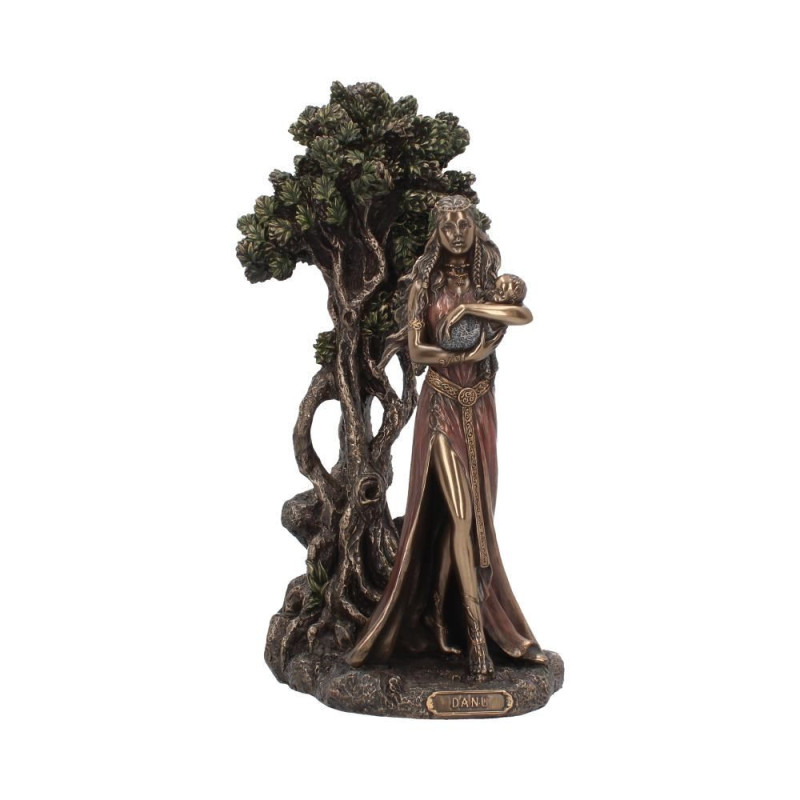- Out-of-Stock






Gaelic Goddess figurine.
In front of a flourishing tree, Danu cradles a sleeping baby in her arms.
Cast in the finest resin.
Skilfully hand-painted.
Size: Approximately 29,5 cm tall.

Security policy

Delivery policy
Danu personified the aquatic essence that generated the gods of ancient Ireland. Although often considered a mother goddess, Celtic records are scant on the goddess's identity, carefully guarding her details. Even its name represents a reconstruction derived from the title of the pantheon.
She is seen as the primordial or elemental goddess of water, possibly the progenitor of many Irish deities. Most scholars frame her as a mother goddess in Celtic mythology. The Tuatha De Dannan, the primordial gods of ancient Ireland, derive their name from her. In English, their name is translated as “The People of the Goddess Danu”.
Some later versions of renowned legends identify specific deities as their descendants. Brigid, for example, is referred to as his daughter in one narrative. This often leads to the assumption of a link with the Dagda, one of the early leaders of the Tuatha De Dannan, who is the father of Brigid and several other gods.
The analysis transcends India, highlighting the widespread presence of the goddess in Europe. The term “danu” is intrinsically linked to water, notably associated with rivers such as the Danube, Don, Dnieper and Dniestr, evidence of its influence in the regions where the Germanic tribes and, subsequently, the Celts flourished.
The theory suggests that the Celtic mother goddess, Danu, shared a similar essence with her Vedic counterpart, both possibly representing primordial water goddesses who disappeared after engendering new divine lineages.
According to a legend, Danu was born into a Clan of Dancers who lived along the Alu River. His name was chosen by his grandmother, Kaila, Priestess of the Clan. It was she who dreamed of a boat carrying her people across seas and rivers until they reached an island, where she should build a temple, so that peace and abundance would be assured. Upon awakening, Danu reported her dream to the council and the great trip began to be planned.
The name Danu also relates to European rivers, reinforcing its connection with ancient Celtic and Germanic traditions. Danu's simultaneous presence in Ireland and India illustrates the spread and similarities of divine archetypes across cultures distant in space and time.